
Bicho de Sete Cabeças or its English title "Brainstorm", is a Brazilian film within the drama genre, with an approach to that type of neorealist cinema, very characteristic in the Latin American film world, which touches on different points from a social approach, and this feature film does not deviate from this premise proposed by director Laís Bodanzky and screenwriter Luiz Bolognesi, who structured a story related to a teenager, who is affected by a consequence of the system of a society that does not really care about the human factor.
This teenager is the main protagonist of this feature film, played by a young man who was beginning to be known in the world of Brazilian and international cinema, Rodrigo Santoro, who personifies in image and conducts Neto, who is a young man who belongs to a relatively well-to-do family, But it is traditionally the typical Brazilian family or more generally of those characteristic families in Latin America, where we see the imposing image of a father, while the young Neto, adapts to the circumstances or routines of any young man at that time, at the beginning of the new millennium.
Bicho de Sete Cabeças o su título en inglés "Brainstorm", es una película brasileña dentro del género drama, con un abordaje a ese tipo de cine neorealista, muy característico en el mundo cinematográfico de Latinoámerica, que tocan diferentes puntos desde un enfoque social, y este largometraje no se aparta a esa premisa planteada por la directora Laís Bodanzky y el guionista Luiz Bolognesi, que estructuraron una historia relacionada a un adolescente, que se ve afectado por una consecuencia del más sistema de una sociedad, que en realidad no se preocupa por el factor humano.
Dicho adolescente, es el principal papel protagónico de este largometraje, interpretado por un joven que se comenzaba a conocer en el mundo del cine brasileño e internacional, Rodrigo Santoro, personifica en imagen y conducta a Neto, que es un joven que pertenece a una familia relativamente bien económicamente, pero que tracionalmente es la típica familia brasileña o más de manera general de esas familias características en América Latina, donde se ve la imagen imponente de un padre, mientras que el joven Neto, se adapta a las circunstancias o rutinas de cualquier joven en esa época, en pleno comienzo del nuevo milenio.
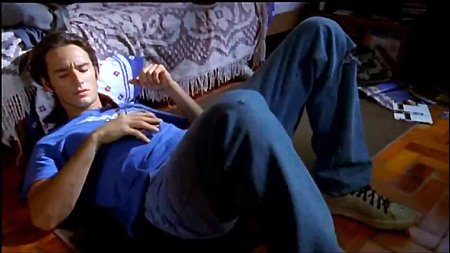
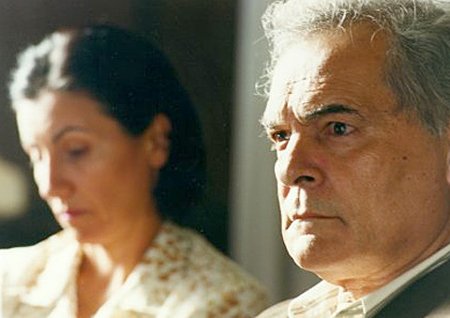
In a way, Neto is a little reluctant to his family, but tends to respect the image of his father, who in some scenes they share occasions, such as their tastes for soccer, otherwise he has no other affinity apart from being his son, who maintains a life like any teenager who wants to share more with his friends, which obviously creates a great influence on Neto.
Although as a result of these friendships, Neto's family discovers one day that he smokes marijuana, and his father makes the radical decision to commit him to an asylum, of course a decision out of context, without being able to address the problem from a more basic approach, without reaching the point of practically seeing Neto as if he had a mental illness.
De cierta forma, Neto es un poco renuente a su familia, pero tiende a respetar la imagen de su padre, quien en algunas escenas comparten ocasiones, como sus gustos por el fútbol, de resto no tiene otra afinidad aparte de ser su hijo, que mantiene una vida como cualquier adolescente que quiere compartir más co sus amigos, que obviamente crea una gran influencia sobre Neto.
Aunque a raíz de esas amistades, de va ha generar consecuencias nefastas a Neto, que un día su familia le descubre que el fuma mariguana, y ante tal hecho el padre, toma la decisión radical de internarlo en un manicomio, por supuesto una decisión fuera de contexto, sin poder abordar el problema desde un enfoque más básico, sin llegar a ese punto de prácticamente ver a Neto, como si tuviera una enfermedad mental.
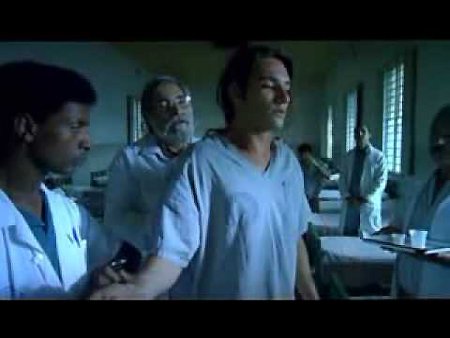
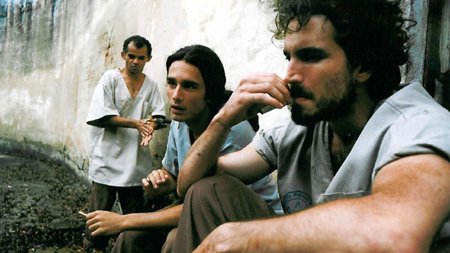
Once Neto was interned in the asylum, totally forced by his father's decision, he felt very confused and full of anger, but his mental condition was actually very stable, and the simple fact of living among individuals with very serious mental conditions, such as schizophrenia, was not at all easy for Neto, The simple fact of his rebellious act as a teenager was enough for him to end up in a situation like that, where he witnessed the poor conditions of the establishment and the incompetence of the psychiatrists to give a true assessment of Neto's condition, making it very difficult for him to get out of that circumstance.
As time goes by, Neto, between resentments and constant frustration, begins to have delusions that little by little affect his condition, until he reaches the point of having an emotional and mental imbalance, reaching the point of insanity, all thanks to the time he has been hospitalized. Neto's father visits him to find out about him and notices that instead of improving, he finds him in a very serious condition, where it is not possible to see if he is really sane or in full mental capacity.
Una vez Neto internado en el manicomio, totalmente obligado por la decisión de padre, se siente muy confundido y lleno de ira, pero su condición mental en realidad era muy estable, y es que el simple hecho de estar conviviendo entre individuos con condiciones mentales muy graves, como esquizofrenia, no era nada fácil para Neto, que por el simple hecho de acto rebelde de adolescente, fue suficiente para que terminara en una situación como esa, donde presenciaba las malas condiciones del establecimiento y por otra parte la incompetencia de los psiquiatras de dar una verdadera valoración de la condición de Neto, se le hace muy difícil de salir de esa circunstancia.
Luego con el tiempo Neto, entre resentimientos y una constante frustración, comienza a tener delirios que poco a poco le va ha afectando su condición, hasta llegar al punto de tener un desequilibrio emocional y mental, llegando al punto de la locura, todo gracias a ese tiempo que ha estado internado. El padre de Neto lo visita para saber sobre él y nota que en vez de mejorar suspuestamente, lo encuentra en una condición muy grave, donde no se puede ver si de verdad está cuerdo o en toda su capacidad mental.
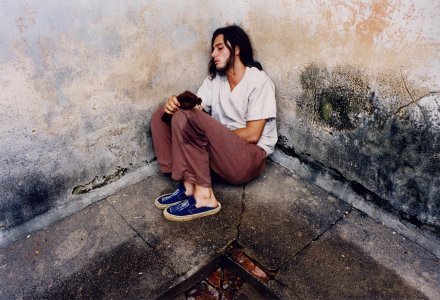
Then over time Neto, between resentments and constant frustration, begins to have delusions that little by little has affected his condition, to the point of having an emotional and mental imbalance, reaching the point of insanity, all thanks to the time he has been hospitalized. Neto's father visits him to find out about him and notices that instead of improving, he finds him in a very serious condition, where it is not possible to see if he is really sane or in full mental capacity.
Con esta película estrenada en 2001, veo una crítica ante las malas desiciones drásticas, que pueden tomar los padres a ciertas circunstancias de sus hijos, y por otro lado las pésimas condiciones de salubridad, el trato inhumano y la corrupción de las autoridades en el sector de la salud, y en específico la salud mental de las personas.

~~~ embed:1503999209107857410 twitter metadata:Q2FybWluYV9TYWxhemFyfHxodHRwczovL3R3aXR0ZXIuY29tL0Nhcm1pbmFfU2FsYXphci9zdGF0dXMvMTUwMzk5OTIwOTEwNzg1NzQxMHw= ~~~
The rewards earned on this comment will go directly to the person sharing the post on Twitter as long as they are registered with @poshtoken. Sign up at https://hiveposh.com.
Thank you for your reviewof this movie, I can't say I've heard of it beforte, but it sounds like an interesting title to watch to see a little bit of the Latin American lifestyle in those years.
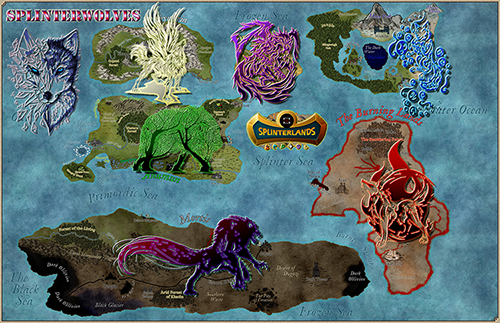
You were curated by the
Thanks for the appreciation, this movie like many from Brazil, are highly recommended.
Brainstorm is one of my favorite movies! I remember the first time I saw it and how I cried with Neto's story. It was so unfair what he went through. Let's say a life lost because of a misunderstanding. The asylum always reminded me of Dante's hell. Undoubtedly a film from another world. Very good publication.
Excato this film makes an apology for Dante's Inferno.